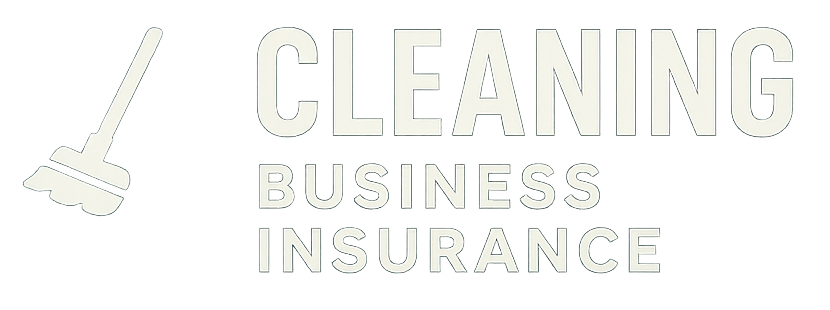Cleaning multiunit apartment buildings in Los Angeles comes with unique challenges and responsibilities. Unlike standard residential cleaning, these properties involve shared spaces, multiple tenants, and sometimes high-end fixtures that require specialized care. Alongside the practical challenges, cleaning contractors also need to navigate the complex world of insurance requirements. Meeting these insurance requirements is not only a legal and contractual necessity but also a key factor in protecting your business from financial loss and liability.
Understanding the Importance of Insurance for Multiunit Cleaning
When working in multiunit apartment buildings, you are exposed to higher liability risks compared to single-family residences. Slips and falls in common areas, accidental damage to tenant property, and injuries to employees are all potential risks. Insurance serves as a safety net to protect your cleaning business against these claims. It ensures that even if accidents occur, your business will not be financially crippled by medical expenses, property damage claims, or legal fees.
Additionally, apartment building owners and property management companies often have strict insurance requirements for their contractors. They want reassurance that any potential damages or accidents will not become their responsibility. By meeting these insurance requirements, cleaning businesses not only comply with contractual obligations but also gain credibility, giving them a competitive advantage in securing larger and ongoing contracts.
Key Types of Insurance for Cleaning Apartment Buildings
For cleaning contractors operating in multiunit apartment buildings, several types of insurance are particularly important:
General Liability Insurance
General liability insurance is the foundation of protection for any cleaning business. It covers third-party bodily injury, property damage, and legal costs arising from accidents that occur while performing your services. For example, if a tenant slips in a wet hallway or a cleaning employee damages a tenant’s personal item, general liability insurance will cover the claim, protecting your business from financial losses. In Los Angeles, where multiunit buildings often have high tenant turnover and heavy foot traffic, this coverage is essential.
Business Owner’s Policy (BOP)
A Business Owner’s Policy (BOP) is a convenient package that bundles general liability and property insurance with business interruption coverage. For cleaning companies, this can provide protection for your office equipment, cleaning tools, and even vehicles used for transporting supplies. The business interruption component ensures that if a covered event prevents you from working, your lost income is partially protected. Having a BOP simplifies your insurance management while offering comprehensive coverage.
Workers’ Compensation Insurance
Employees working in multiunit buildings are exposed to physical risks such as lifting heavy furniture, climbing stairs, or handling cleaning chemicals. Workers’ compensation insurance is mandatory in California for any business with employees. It covers medical expenses, rehabilitation costs, and lost wages if an employee is injured on the job. Ensuring that your workers are covered not only protects your staff but also shields your business from potential lawsuits.
Optional Coverages
Depending on the scope of your work, additional coverage options can provide extra protection. For instance, commercial auto insurance is necessary if you use vehicles to transport employees or equipment between buildings. Umbrella insurance can increase liability limits, which is particularly useful when working in high-traffic, multiunit properties where accidents could lead to large claims. Janitorial bonds may also be requested by property managers to provide an extra layer of trust, covering losses caused by employee theft or dishonesty.
Navigating Building and Management Requirements
Apartment building owners and property management companies often have specific insurance requirements written into contracts. These requirements may include minimum liability limits, proof of workers’ compensation coverage, and certificates of insurance naming the property as an additional insured party. Meeting these requirements is not optional if you want to secure and maintain contracts with larger apartment complexes.
Before signing any agreements, it is crucial to review these insurance requirements carefully. Communicate with your insurance provider to ensure your policies meet or exceed the limits specified in the contract. Some property managers may also request tailored endorsements to address particular risks, such as cleaning high-rise windows or handling sensitive facilities.
Best Practices for Managing Insurance Compliance
Handling insurance requirements effectively requires a proactive approach. Here are some best practices:
Regularly Review Policies: Make sure your coverage levels are adequate and updated as your business grows. Expanding into more buildings or hiring additional staff may necessitate higher limits or additional coverage types.
Maintain Documentation: Always keep up-to-date certificates of insurance and proof of coverage on hand. This helps streamline contract negotiations and demonstrates professionalism to property managers.
Train Employees: Proper training reduces the risk of accidents and claims. Educate your staff on safe cleaning practices, handling chemicals, and navigating common areas safely.
Establish Safety Protocols: Implement clear protocols for wet floors, stairways, and other high-risk areas. Using proper signage and protective equipment can minimize liability incidents.
Work With Experienced Insurance Providers: A knowledgeable provider can help tailor coverage to meet the specific needs of cleaning multiunit buildings in Los Angeles, ensuring compliance and adequate protection.
Conclusion
Operating a cleaning business for multiunit apartment buildings in Los Angeles requires careful attention to insurance requirements. From general liability and workers’ compensation to optional coverages like commercial auto or umbrella policies, having the right insurance ensures both compliance and protection. By proactively managing insurance needs, cleaning contractors can safeguard their business, employees, and clients while building trust with property management companies. Meeting these requirements is not only a legal and contractual necessity but also a key factor in growing a successful and reputable cleaning business in California.
